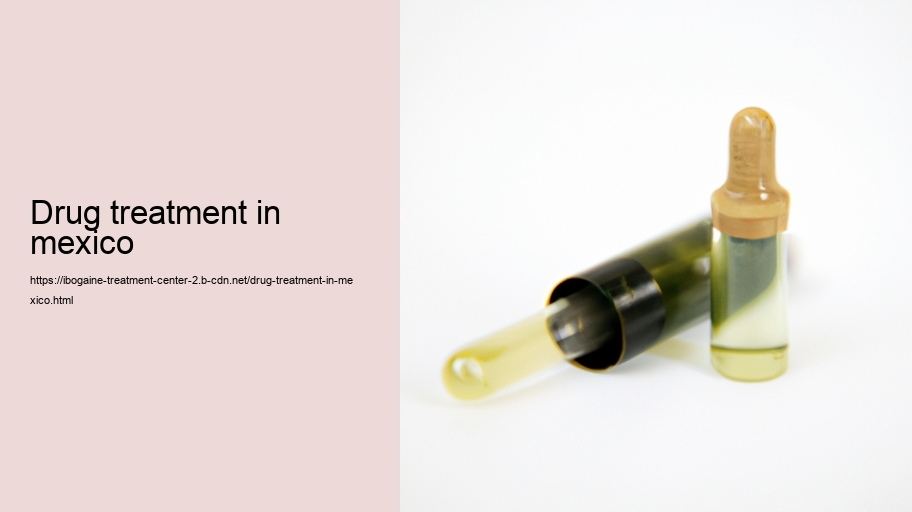Drug Treatment in Mexico: Challenges and Progress
The issue of drug addiction has been a longstanding challenge in Mexico, a country that has not only battled with the production and trafficking of illicit substances but also with the health and social consequences that arise from substance abuse. Drug treatment in Mexico is a complex subject that encompasses various approaches, including medical interventions, psychological support, community initiatives, and legislative measures. In this essay, we will explore the current landscape of drug treatment in Mexico, looking at both the challenges faced by those seeking help and the strides made to improve access to effective treatments.
Challenges in Addressing Drug Addiction
Drug addiction is a multifaceted problem that affects individuals across all walks of life. In Mexico, one of the main challenges in addressing this issue is the stigma associated with substance abuse. Many people perceive addiction as a moral failing rather than a health condition that requires treatment. This stigma can prevent individuals from seeking help or receiving adequate support from their families or communities.
Another significant obstacle is linked to poverty and lack of resources. For many Mexicans living in impoverished areas, access to quality healthcare—including drug treatment programs—is limited or non-existent. Public health facilities may be underfunded and understaffed, making it difficult for them to provide comprehensive care for addicts.
Moreover, violence related to drug cartels complicates efforts towards rehabilitation. The ongoing war against drugs creates an environment where substance users are often caught between law enforcement crackdowns and cartel activities. This can make it hazardous for individuals struggling with addiction to seek out formal treatment programs without fear of legal repercussions or retaliation from criminal groups.
Progress Toward Effective Drug Treatment
Despite these challenges, there have been concerted efforts within Mexico to develop more effective strategies for treating drug addiction. One such advance has been the recognition of addiction as a public health issue rather than solely a criminal matter. This perspective shift allows for more humane approaches focusing on prevention, harm reduction, and rehabilitation instead of punishment.
Mexico has also seen growth in community-based initiatives aimed at providing holistic support for those dealing with substance abuse problems. These programs often combine therapy sessions—both individual and group—with vocational training and other activities designed to re-integrate recovering addicts into society successfully.
In recent years, there's been expansion in both governmental and non-governmental organizations dedicated to offering counseling services, outpatient care options, detoxification assistance, residential rehab facilities as well as aftercare services which are crucial for preventing relapse.
Furthermore, advances have been made toward integrating traditional indigenous healing practices into conventional drug treatment methods—a culturally sensitive approach that resonates well within diverse Mexican communities.
Policy Reforms & International Collaboration
On the policy front, reforms have gradually taken shape; decriminalization efforts regarding possession of small amounts of certain drugs aim at redirecting users toward recovery paths rather than prison cells—the ultimate goal being reducing incarceration rates among non-violent offenders who suffer from substance dependence issues.
International collaboration plays an essential role too; partnerships between Mexican institutions and foreign counterparts help share best practices around prevention strategies while facilitating research into new treatment methodologies.
Conclusion
Tackling drug addiction within Mexico remains challenging due partly to external factors such as organized crime alongside internal struggles like societal stigma or resource scarcity—but progress through innovation continues steadily forward despite these hurdles.
With continued commitment toward development policies prioritizing human rights alongside physical/mental wellness plus greater investment within healthcare infrastructure capable providing specialized services needed during recovery processes—it's possible envision future where individuals grappling addictions receive compassionate care necessary reclaim lives free substances dictate terms existence.
As global understanding dependency evolves so must solutions offered nation grappling daily impact drugs upon its citizens; hope lies persistent pursuit better tomorrow today’s groundwork lays foundation upon which build coming generations will stand stronger healthier safer thanks lessons learned hard-fought battles waged against scourge addiction today’s world especially within borders beautiful yet beleaguered land known lovingly simply México
